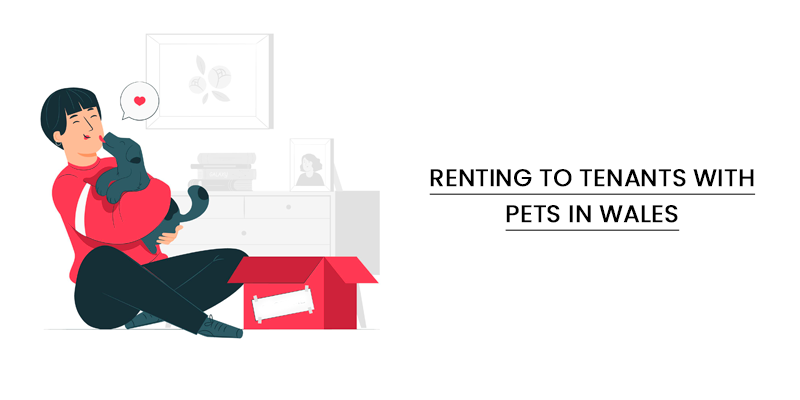Not keen on renting to tenants with pets in wales? It’s going to get harder to refuse them. Here’s what you need to know.
As you are probably aware, from July 15 2022, renting in Wales is set to undergo some far-reaching changes with the introduction of the Renting Homes (Wales) Act. This will impact all aspects of renting, from tenancy contracts to eviction processes and processes for the repossession of abandoned properties.
One interesting development concerns the issue of pets in rental properties. It’s often a contentious issue, with landlords wary of additional wear and tear, damage, or even an infestation of fleas or mites leading to expensive end-of-tenancy clean ups.
One of the effects of the recent Covid outbreak was the so-called ‘Pandemic Puppy Boom’: the number of dogs being bought or adopted soared during lockdown. The UK is home to approximately 12 million dogs, and nearly a quarter of all households owning one or more pets.
As of March 2020, according to the Welsh Government Dwelling Stock Estimate, one third of all people in Wales live in rented accommodation.
However, up to this point only 7% of landlords advertised ‘pet friendly’ properties (Gov.uk). Landlords are currently able to place a blanket ban on renting to tenants with pets, and many take advantage of it. This can lead to pet owners experiencing difficulty when trying to find a suitable rental property and even being left in the heart-breaking situation of having to give up their well-loved pets in order to move into their chosen property. As well as the emotional trauma, this can place undue and unnecessary pressure on animal welfare charities such as the RSPCA. Understand the pros and cons of pets in rental properties.
The new ‘model tenancy agreement’ is the contract template that is recommended for landlords to use. Tenancy agreements will be replaced with ‘occupation contracts’.
One of the many changes that comes with this is that consent for pets will be the new default position. Landlords will have 28 days to object in writing to a written pet request from a tenant and will have to provide a good reason to refuse – for example, if the size of the property or lack of a garden could have a negative effect on the animal’s well-being.
It’s worth noting that the model tenancy agreement in Wales is only an advisory document and as such has no legally binding effect. At present the statutory terms from the act do not include anything about the keeping of pets in a property, but this could be included as ‘additional terms’.
At present there is no legislation in place in Wales to cap the security deposit, so this could be used as a way to mitigate the risk of costly damage caused by pets. In contrast, in England, the security deposit can only be the equivalent of 5 weeks’ rent. Don’t forget that any security deposit will need to be protected under a recognised deposit protection scheme.
Need help?
At Morgan Jones we’ll handle any tricky situations with pets in properties for you. Get in touch today to find out how we can help you.








Join The Discussion